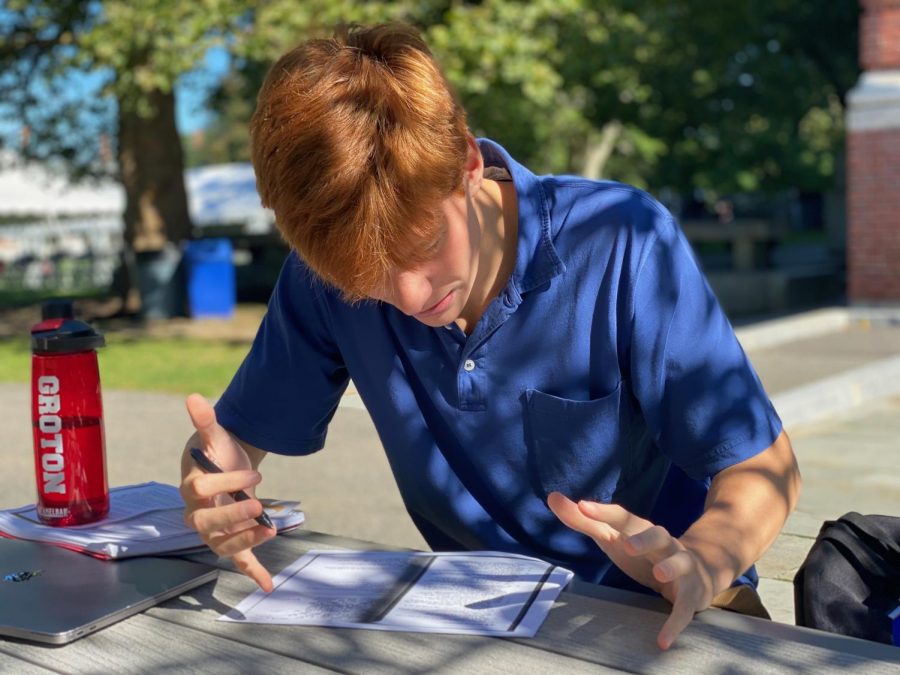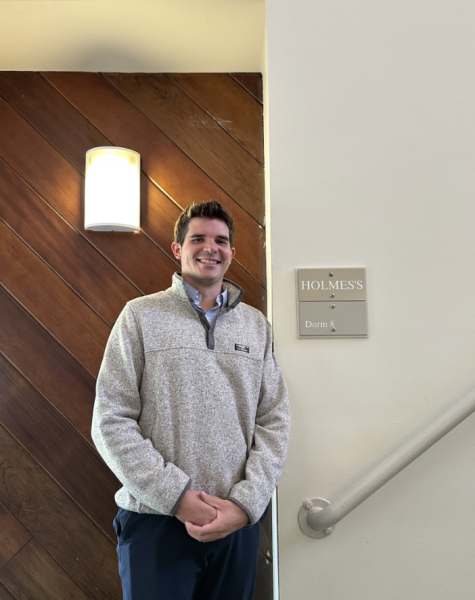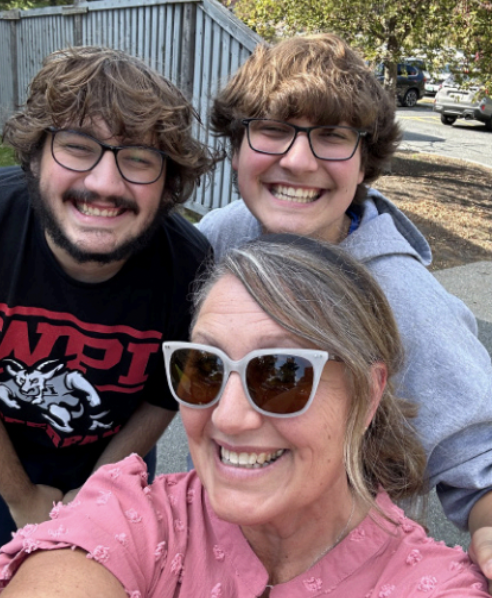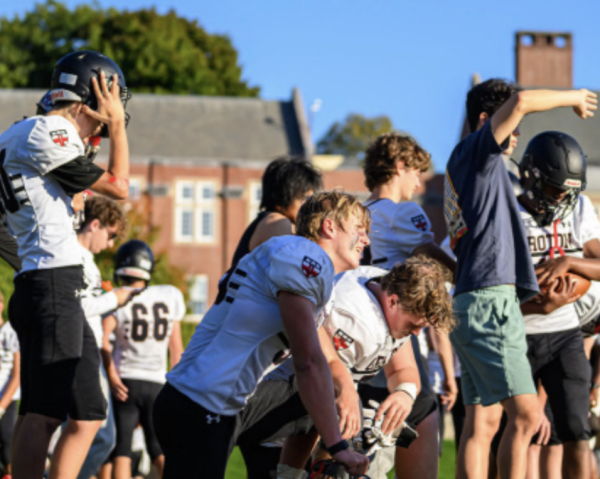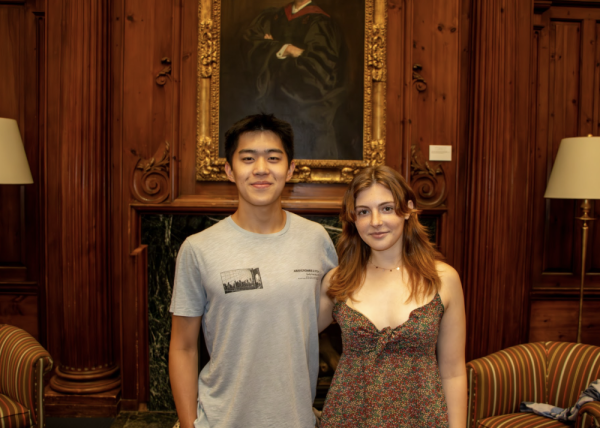Macroeconomics, Miles Gloriosus, and More: This Fall’s Tutorials
In their senior year, Groton students have the opportunity to create a tutorial with a teacher, enabling them to explore a specific subject of their interest in greater depth and create a final project or presentation. Some of this year’s fall tutorials are highlighted below.
Plautus’ Miles Gloriosus and Roman Comedy
John Rogers ’22 is working with Dr. Ross, a Latin and Greek teacher and scholar, to read Plautus’ comedy Miles Gloriosus. John is particularly interested in Plautus’ work since it is 200 years older than the work of Virgil (the Latin poet who wrote the famous Aeneid), and so the language and grammar is very different from what John is used to reading. John reads aloud roughly 100 lines during each of his two weekly sessions without assistance, and these small presentations mean that John will not need a culminating project. “It has been such a privilege simply to chat with Dr. Ross about this literature,” John commented. “An extremely valuable experience, to say the least.”
Economic Crises: 1973, 1988, 2008
After taking Microeconomics, Edric Kan ’22, Emily Li ’22 and Yujin Lim ’22 wanted to apply the work in a worldly context. Under the guidance of Ms. Bai, they created a tutorial to study financial crises around the world. They study a common crisis, but they divide researching the different countries affected among the three of them. They present to each other during weekly meetings, and they are working on a podcast to keep track of all they have learned. By the end of the tutorial, they will hold a presentation exploring one of the crises in more depth.
Julio Cortázar’s Rayuela
For their Spanish elective, Jack Ehrgott ’22, Jared Gura ’22 and Rufus Knuppel ’22 are reading the 700-page philosophical “anti-novel” Rayuela with Señor Fernandez. The book includes, as Rufus puts it, “a lot of trippy sequences of description and philosophy,” and paradoxical elements like asynchronous chapters. They get to “appreciate the irony of fighting against the novel, within a novel, within a framework of a novel,” says Jared, and explore the different perspectives in the novel: “of this side, of the other side and from sides beyond.”
Cellular Automata
With the help of Mr. Gnozzio, Steven Pang ’22 and Jack Wang ’22 are studying Cellular Automata and Complexity, a collection of papers by Stephen Wolfram. Cellular Automata is a model in physics and computation theory that models natural systems, and this tutorial involves reading and coding Wolfram’s theories. They read half of a paper for every biweekly meeting, and Mr. Gnozzio leads class by going over anything they don’t understand. This usually amounts to “quite a bit because Wolfram is a genius,” says Steven. For the end of the term, Steven and Jack will share some applications of cellular automata — including modelling traffic and seashells — with the community.
Documentary: Early Childhood Development in Rural China
Last summer, Tyler Weisberg ’22 attended a summer program in China with Professor Scott Rozelle, leader of the Stanford rural education action program, to explore the power dynamic between mothers and grandmothers. Now he is working on a documentary about his experience. During biweekly meetings, Mrs. Andersson helps Tyler filter through his long footage from the summer. Currently Tyler has a script, two hours of footage, and a fourth of the film done. He is determined to release the film by the end of the term!
An Ovid Reader
Latin Teacher Mrs. Martin-Nelson has been a mentor for Stanley Spence ’22 since third form, and he has wanted to create a tutorial with her ever since. Curious about her frequent allusions to Roman author Ovid in her Latin 5 class, Stanley decided to pursue this author and his antagonism of the Roman empire. In this mostly reading-based tutorial, Stanley explores both English translations and Latin texts by Ovid. He is working on a midterm about “whether Ovid uses a persona in his poetry,” and a final paper that explores how each persona might antagonize the emperor differently.
Experimenting with Biochemistry
After taking all of Mr. LV’s biochemistry electives last year, including the experimental biochemistry class, an elective which focuses on performing labs relating to biochemistry, Edric Kan ’22 wanted to pursue this field further. With Mr. LV, Edric created a tutorial which continues the work from last year’s elective. So far, Edric and Mr. LV have made pTAC polymerase (a DNA promoter) and used it to create DNA, and they look forward to soon trying to identify and tag CREB proteins (proteins which regulate gene expression), all of which he will display in his final presentation. Edric says that he is excited to “be in the lab — that’s the best part about it.”


